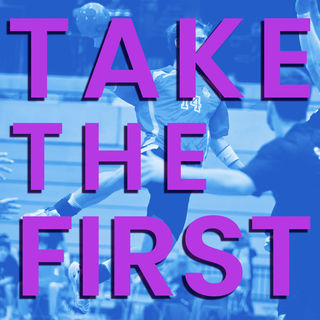Projection
When Your First Choice Is Your Best Choice
Research shows “take the first” can be the best strategy in certain situations.
Posted November 8, 2019 Reviewed by Devon Frye

A lot of people assume that being methodical, taking your time, and thinking through all your options always leads to better results. Some psychological research actually suggests otherwise. Sometimes, simply choosing the first option you come up with is the best option.
TL;DR. For ill-defined tasks where you have repeated situations and feedback, going with your first choice (i.e. your gut instinct) results in the best decision.
What the Research Shows
In a 2003 study, 85 German and Brazilian male handball players participated in an experiment conducted by Joseph G. Johnson and Markus Raab. Participants were from six different club teams, varying in age from 13 to 18 years old. Their experience in handball ranged from 6 to 11 years and the players trained anywhere from 1 to 12 hours a week.
Each participant stood in front of a video projection board and viewed 31 different handball scenarios which lasted approximately 10 seconds. The scenarios were stopped and freeze-framed for 45 seconds. Players were told to imagine as if they were the player with the ball when the scene was frozen and were asked to complete three different tasks.
The first task was to name the option that intuitively came to mind (i.e. their first choice). This could be whether they would move, who they would pass to, or whether they would shoot the ball, and in what way they would complete this task. They were to do this as quickly as possible without filtering themselves.
Second, they were told to come up with as many other options as they possibly could. Third, they were asked to decide what they would actually do in this scenario (i.e. what they believed would be the “best choice,” which was referred to as their final choice).
Afterwards, participants played in a tournament. All of the games were videotaped and later evaluated by four professional handball coaches. This assessment was done to get a better measure of a player’s expertise, outside of their self-reported experience and practice time. These coaches are henceforth referred to as the judges (so ominous, I know).
The Results: On average, participants produced 4.23 options per scenario. In total, the athletes produced 107 different solutions. All four judges rated all 107 options, rating how appropriate each option was for each scenario (i.e. inappropriate, appropriate, moderately appropriate, very appropriate, or the best solution).
Analysis of the options produced by the handball players and the judges’ ratings showed a trend of decreasing option quality with each new option generated by the participants.
In other words, the sooner an option was generated by a player, the higher the likelihood that it was an appropriate choice.
As Johnson and Raab put it:
“...stopping the option-generation process sooner would result in better decisions, on average. In fact, had participants not generated any options but instead relied solely on their first choice (‘‘Take the First’’), they would have, on average, chosen options with higher quality—a result of the decline in the average frequency of appropriate choices.”
Participants were more likely to switch from a good first choice to a poor final choice than they were to switch from a poor first choice to a good final choice.
When Does This Apply?
For the “Take the First” strategy to work, you need a familiar yet ill-defined task.
“An important requirement for successful application is repeated exposure to situations with feedback,” say Johnson and Raab.
Sports like handball provide a good test case for this as there are lots of possessions in which a team can score. The players must also make quick decisions—plus, they get immediate feedback based on whether or not they score on that play.
Expertise is likely a moderating factor, as those who are more experienced are more likely to come up with a better initial choice since they can sift through noise more quickly. However, the researchers did not conduct this study to look at expertise, so we’ll leave that for another post.
What This Means for You
Thinking thoroughly about your choices is often a smart thing to do. But in certain circumstances, it can lead to worse results. Make sure to consider what kind of situation you find yourself in and always remember what your gut instinct tells you. As a safeguard, the next time you’re making a list of choices, be sure to write them down in the order you come up with them. That top spot just might be the top choice.
© Josh Gonzales




